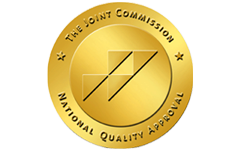Spring is the season of renewal, so get caught up in the fever and throw out the junk and re-organize your space! For senior citizens and their caregivers, these five spring cleaning tips are for safety first.
1. Check the Medicine Cabinet
Are medications labeled and stored in their proper containers? Do you have old prescription drugs mixed in with the new? These common practices in homes pose potentially dangerous health hazards. Whereas some medications still retain their potency after expiration dates, many do not and should be disposed of. Old liquid antibiotics, drugs comprised of organic ingredients and those requiring refrigeration should be safely discarded.
Be sure to store medications in a cool, dark, dry place; the bathroom does not fit that category. A better place is an airtight plastic container on a shelf in your closet.
2. Clean Up Clutter
Trips and falls are likely to happen when you accumulate too much “stuff”. Reduce the risk by removing unnecessary and obstructive items from your regular walking path and place them in storage. Make maintaining a clear walkway in every room of the house or apartment a top priority. Tape carpet edges or throw rugs to the floor or get rid of them entirely.
In the kitchen, remove infrequently used appliances off the counter, organize cabinets, create front row spaces for frequently used items, and clear out the refrigerator and pantry of stale food.
3. Have an Emergency Plan in Place
In case of an emergency such as a fall, an attempted burglary, or a kitchen accident, do you have important numbers on speed dial? Know who to call in an emergency and have your phone programmed, accordingly.
If you reside in an assisted living community, be sure you understand how the emergency response system works. Just like when you were living in a neighborhood, look out for others and know who to go to for help.
4. Never Try to Move Heavy Objects or Furniture on Your Own
For seniors with reduced strength or mobility challenges, doing household chores may seem like a monumental task. Never try to move furniture or heavy objects on your own. Don’t stand on a chair or ladder to clean heard to reach spots or change light bulbs. Use cordless cleaning tools and lightweight equipment which are easier to use. Try the newer, more efficient technology tools on the market designed to make modern household cleaning a breeze.
5. Monitor Your Smoke Alarm System, Fire Extinguisher and Emergency Kit
Periodically check your smoke alarm system and carbon monoxide detectors; run a test to ensure batteries for detectors are functional.
Every home should have at least two handheld fire extinguishers. Check the expiration date and remind yourself to monitor the device every once in a while.
Emergency kits should be assessed often and restocked in the spring and winter. General contents may include: flashlight and spare batteries, thermometer, Band-Aids, scissors, tape, triple antibiotic ointment, wound care dressings, allergy and digestive medications, protein bars, a current medication list and names and phone number of family or friends to contact an emergency.


